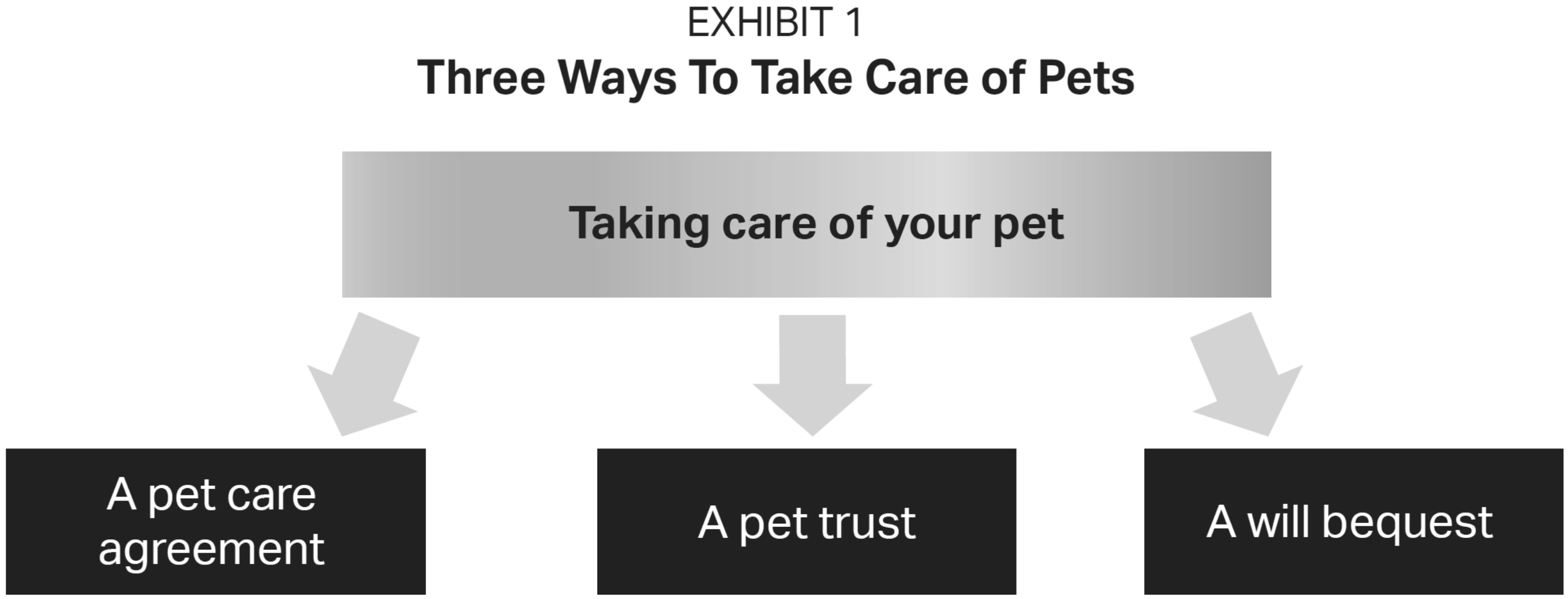Key Takeaways
- Define how you want your pet taken care of and choose a pet caregiver.
- Pet care agreements and trusts are two formal ways of ensuring your pet will be cared for.
- Add up the financial aspects of pet care and include them in your plan.

More U.S. households today own pets than ever before—a full 70%, up from 56% back in the late 1980s. And more than 23 million households (about one in five) adopted a pet during the pandemic.
If you’re a part of that large group—made up of roughly 90 million families—you probably consider your pet an important member of the family that you love deeply. Example: A study by Consumer Affairs surveyed 1,000 pet owners and found that 57% of participants age 27 to 42 love their furry friends more than their siblings.
But have you considered what could happen to that cherished family member if you were to die suddenly? And have you taken any steps to ensure your beloved dog, cat, horse or other animal will be well taken care of if you’re not around to do the job?

Crafting a plan that works for you
Rather than rely on a simple verbal agreement with a chosen guardian, create a formal, written plan that spells out all the key aspects—from who will be involved to what the care expectations are to how to pay for the care (and caregiver). The reason: Formal plans can be enforced if necessary.
Important: You cannot leave money directly to your pet because animals are property—like a car or dining room table—in the eyes of the law. That leaves you with three main options for safeguarding the care of your pets (see Exhibit 1).

1. Pet care agreement
A pet care agreement is a contract you make with another person who has agreed to care for your pet in case of your death. This type of formal agreement will be enforceable. It should spell out the specific care you want for your pet as well as how any money you have arranged for that care is to be handled (including what happens if there are excess funds after the pet dies).
2. Pet trust
A pet trust is also a legally enforceable arrangement that helps ensure your pet care wishes are honored. As with the pet care agreement, you will need to identify a willing and able pet guardian. But you will also need someone to administer the trust—a trustee. That person may or may not be the pet guardian. A separate trustee can add a layer of protection because he or she can check on the well-being of your pet and ensure that the money allocated to pet care is being used properly.
You can establish a pet trust now or upon your death. Either way, you need to fund the trust for the care of your pet. This often entails coming up with some number to ensure a certain standard of living for your pet. Be sure to consider the costs of possible or likely medical care for your pet, as it can be expensive (especially later in your pet’s life).
Make a plan—or review the one you have
You don’t have to be extremely wealthy to do some basic (or even advanced) estate planning that involves your pet. Anyone who sees his or her dog, cat or other animal as a beloved family member should consider taking steps to ensure it will continue to get the love and attention (and treats) it’s become so accustomed to. The alternatives—a shelter or worse—are usually highly unappealing to pet lovers.
Next steps: If you’re interested in making arrangements to have your pet taken care of after you’re gone, talk with your financial advisor about the best ways to accomplish that goal. Or if it’s been a few years since you last revisited your existing pet estate plan, give it a review to ensure it still meets your needs.


0 Comments